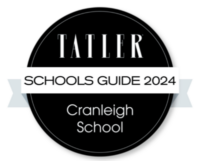This course is designed to provide guidance and support to teachers who wish to use the EPQ as a means of encouraging their students to branch into scientific investigative research. The EPQ offers many opportunities for students to engage in their own investigations, using primary data that they have collected themselves, or published but unanalysed data sets. However, teachers and students are often unsure about how to utilise this opportunity and to cope with the demands of supervising scientific investigations, and managing apparatus requirements.
The aim of the day is to bring together teachers looking to develop and support EPQ work in this area. No prior knowledge or experience is assumed; the day will include an overview of EPQ in general and how best to support student research projects, as well as exploring opportunities for developing scientific investigations with students.
EPSILON is the Extended Project Scientific Investigation, Liaison and Outreach Network. The Network exists to bring together schools seeking to use the EPQ for the purposes of developing their students’ skills in scientific investigation. The Network aims to provide training support and a forum for EPQ science supervisors to share ideas. This training course is intended to help develop and extend the range of schools that wish to participate in EPSILON.
The course leaders are highly experienced science educators with expertise in all aspects of EPQ support as well as support of student scientific research projects.
Charles Barclay is Director of Extended Project and Director of the  Blackett Observatory at Marlborough College. He is currently Vice President (A) of the Royal Astronomical Society. He is an academic visitor in the Astrophysics sub-department and Fellow of Green Templeton College at Oxford. He has been chair of examiners for GCSE Astronomy since 2009 and involved in the EPQ since its inception.
Blackett Observatory at Marlborough College. He is currently Vice President (A) of the Royal Astronomical Society. He is an academic visitor in the Astrophysics sub-department and Fellow of Green Templeton College at Oxford. He has been chair of examiners for GCSE Astronomy since 2009 and involved in the EPQ since its inception.
Dr Elizabeth Swinbank is an Honorary Fellow in Science Education at  the University of York where she has worked on a number of science curriculum projects including the original Perspectives on Science EPQ Designed Programme. She is actively involved in promoting and supporting the EPQ, with a particular interest science-based projects.
the University of York where she has worked on a number of science curriculum projects including the original Perspectives on Science EPQ Designed Programme. She is actively involved in promoting and supporting the EPQ, with a particular interest science-based projects.
Dr John Taylor is an Assistant Head (Director of Learning Teaching and Innovation) and leads the Extended Project and Higher Project at Cranleigh School. He was a co-develo per of the original Perspectives on Science EPQ Designed Programme. For many years he has been working to support EPQ students and teachers in a variety of contexts, including EPQ teacher training and online and written resource production.
per of the original Perspectives on Science EPQ Designed Programme. For many years he has been working to support EPQ students and teachers in a variety of contexts, including EPQ teacher training and online and written resource production.
The Programme Information and Booking Form (pdf) can be downloaded here.
The PowerPoint presentation can be downloaded here: Implementation of Scientific investigation through EPQ
Date: Tuesday 21 November 2017
Time: 09.45-15.15
Venue: Reading Room, Cranleigh School
Price: £240 including VAT per delegate
To book please click on the icon below, or on the Programme Information/Booking Form above. This form should be completed and returned to:
Conference Team, Enterprises Office, Cranleigh School, Horseshoe Lane, Cranleigh, Surrey GU6 8QQ along with a cheque made payable to Cranleigh Enterprises Ltd. Alternatively if you require an invoice to be raised to your institution, or have any further queries, then please contact the Conference Team on 01483 542086 or email conferences@cranleigh.org









